Our News, Your News
By Dylan Levi King, May 3, '19
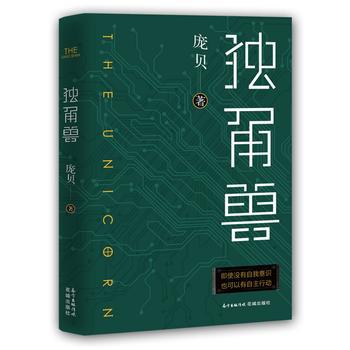
I've got a Twitter timeline full of 5G hysteria, Huawei backdoors, GitHub protests against the tech sector practice of 996 working hours (9 a.m. to 9 p.m., six days a week), the UAE running a drone war in Libya with Chinese tech, a Chinese developer getting nabbed for leaking a wildcard SSL key, Committee on Foreign Investment in the United States pressuring the Kunlun Group to sell Grindr, etc. etc. etc.—the world runs on but seems deeply anxious about Chinese tech.
That makes Pang Bei's Unicorn, a cautionary fable set in the present day Shenzhen tech world, very timely.
More…

Review of Yan Ge's White Horse by Chitralekha Basu: "Told from the point of view of a 10-year-old girl, it is a story in which adults make a mess of their lives and let it all hang out. In certain ways White Horse could be a precursor to The Chilli Bean Paste Clan, in which a teenage girl in a mental health facility imagines the excesses her middle-aged father and his siblings — inheritors of a chilli paste manufacturing enterprise in Sichuan — are indulging in. In both stories, dark family secrets tumble out of cupboards, rupturing the clan’s foundations. However, while The Chilli Bean Paste Clan is unsparing in exposing the sordid inter-personal relationships between the members of a dysfunctional family, White Horse is more tender — observing, as it were, the complicated, irredeemable world of grown-ups from a distance."
White Horse is published by HopeRoad Publishing.
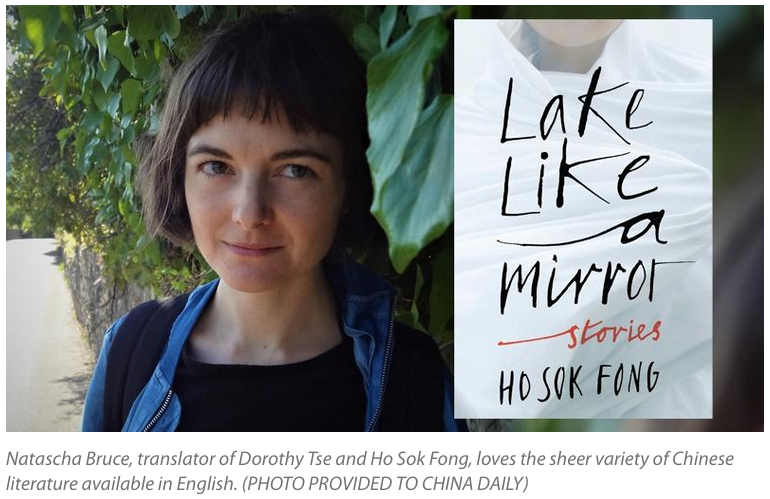
“I don’t have sales or publication figures at my disposal so this may not be the full picture, but it certainly feels as if there is a larger conversation happening around Chinese literature,” says Jeremy Tiang, an author and Chan Ho-kei’s translator. Tiang is also the managing editor of Pathlight, an English-language literary magazine focused on new writing from China.
“Part of this may be China’s increasing influence on the world stage. It may also be down to publishers waking up to the variety of Chinese literature available — moving beyond the big names and seeking out hidden gems such as Wu Ming-Yi (The Stolen Bicycle, translated by Darryl Sterk). There are also more agents working with Chinese writers.”
“The act of subtitling lets you appreciate a film in a way that you would never get by simply watching it. You have to watch it at least three times, and you also have to empathise with every single character in order to effectively translate what they’re saying. So by the time you deliver your subtitles, you have already spent several days with these characters, getting to know them. You are so much more invested in it – as long as the film is a good one. If the film is substandard, then you are trapped in the company of these awful characters, and still forced to empathise with their terrible decisions!”
By Eric Abrahamsen, April 24, '19
The National Consortium for Teaching about Asia administers the Freeman Book Award, given to a children's or young adult book from or about an Asian countries, which has potential to be used in an educational setting. Books must be in or translated into English, and published in the US in the past year. The next submissions deadline is August 31st, 2019.
See this link for details.
By Dylan Levi King, April 19, '19
This is the record of a few days spent with Jia Pingwa and Nicky Harman in Xi'an and environs, as we prepare a translation of Jia's Qinqiang for AmazonCrossing.
I’d already spent the last several days with Jia Pingwa, hanging out in Xi’an and going down to the countryside, but, sitting at a table with the author one night at in Sichuan restaurant off the Second Ring Road in Xi’an, I was dying to do what I’m sure many people have already done: tell him how I first came to read Ruined City.
I think I wanted his approval, to prove to him that I was connected to his works or that I could understand it and that I was the right person to translate it, even if that decision was no longer in his hands.
More…
“The Ma Jian I translate is a very different entity from the Ma Jian I live with,” says Drew. “There is never any confusion. I never feel I’m translating the words of the person I’ve just had supper with, or who’s just taken our children to the park. Knowing him so well though means I can in some strange way become him, and write the translation not as a friend or a translator, but as Ma would if he were writing the book in English...“
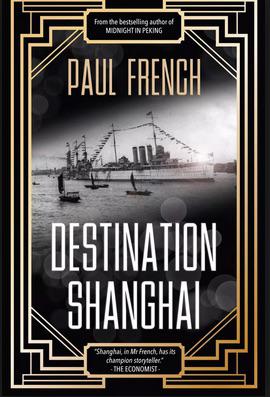
He talks of foreign powers recruiting spies on the Suzhou Creek, while there were Germans who had fled the Nazis to the city. He discusses the crazy visits of celebrities such as American playwright Eugene O’Neil, Harlem poet Langston Hughes, Swallows & Amazons author Arthur Ransome and British occultist Aleister “The Beast” Crowley. There were even Russian refugee chorus girls who later became Hollywood stars, and numerous writers who found their muse in the City. But amid the cosmopolitan wealth, there were also murders and crimes of passion that characterised the darker side of Shanghai’s glory.
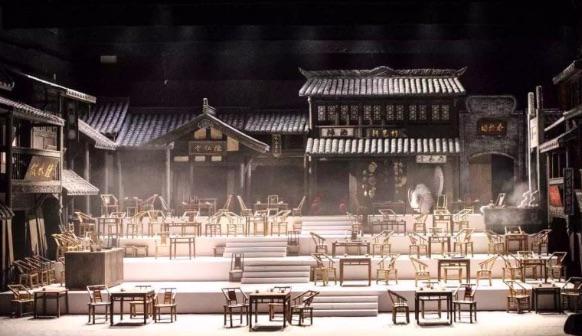
One might argue that Li Liuyi’s boldest decision—translating the play into Sichuan dialect—is partly influenced by Lao She’s own commitment to reflecting the Beijing dialect in his script. Lao She was a Manchu writer whose novels and plays are famous for their “Beijing flavor.” For that reason, Teahouse may be one of the best examples of a canonical spoken drama that has been influenced by a regional dialect. It stands in opposition to much of the history of huaju: a genre that has positioned itself as a national art form that champions standardized Mandarin. While regional genres of Chinese opera are still performed in dialect, opportunities to see established spoken dramas in languages other than Mandarin are few and far between.
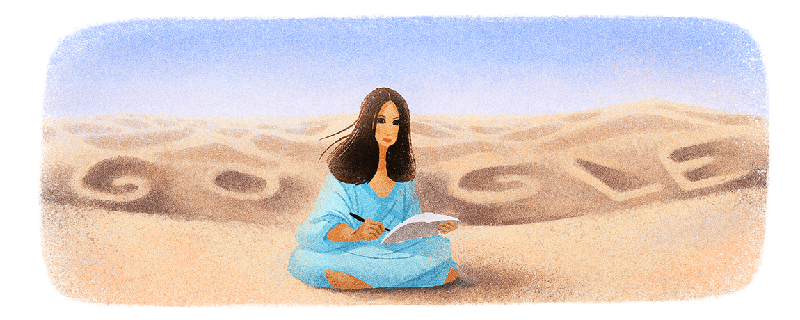
Today’s Doodle celebrates the life and work of Chinese-born Taiwanese writer and translator Chen Mao Ping, known to her readers as Sanmao. Born in Chongqing, China on this day in 1943, Sanmao moved to Taiwan with her family as a young girl. She went on to become a prolific author and world traveler whose moving prose, independent spirit, and thirst for knowledge touched millions.
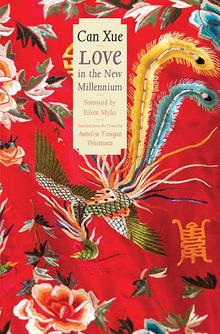
CONGRATULATIONS to Can Xue and translator Annelise Finegan Wasmoen!
There are lots of reviews online: here are a few...
Yale UP book page
Paris Review
Full-Stop
New Yorker
By Nicky Harman, March 13, '19
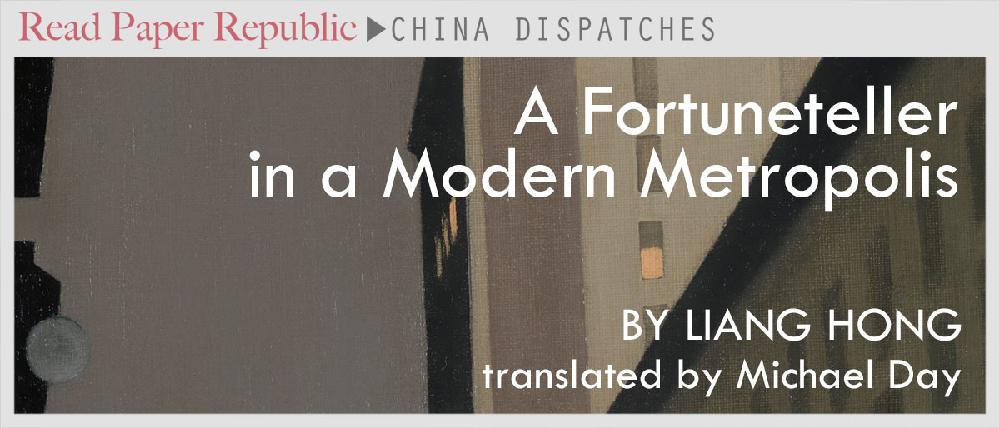
Paper Republic, One-Way Street Magazine and the LA Review of Books’ China Channel publish new essay by Chinese writer Liang Hong, translated by Michael Day.
Paper Republic is delighted to announce the publication of a new creative non-fiction essay. This marks the launch of a second series of Read Paper Republic: China Dispatches, a unique three-way collaboration between Paper Republic, One-Way Street Magazine (单读) and the Los Angeles Review of Books’ China Channel. The series focuses on translating the best non-fiction coming from China right now – and making it available online, completely free to read.
The first instalment – “A Fortune-teller in a Modern Metropolis” by Liang Hong – is translated by Michael Day. The essay tells the story of Xian Yi, a man in an old profession that is curiously out of step with modern China.
经典中国国际出版工程、丝路书香工程优先对国内出版单位与国际一流出版机构签署版权输出、合作出版合同的项目,以及海外知名汉学家、翻译家译介的项目立项。
第5类至第10类(包含文化类、文艺类、少儿类)申报截止时间为2019年4月30日。
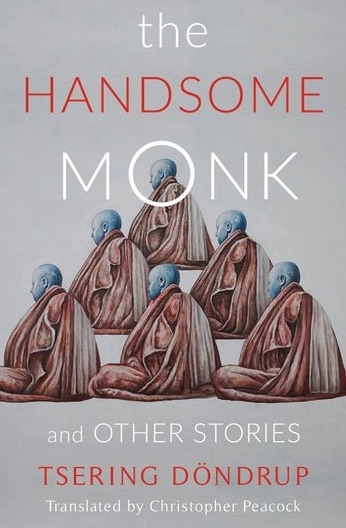
. . . Döndrup, who is originally Mongolian but widely recognised as one of the most important writers in Tibetan of recent decades, has provided a vital and entertaining collection, mostly set in the fictional county of Tsezhung, a rural nomad locale along the real-life Tsechu River in his home region of Malho, Qinghai. Translated brilliantly from the Tibetan by Peacock, the stories humanize the nomadic Tibetan people while satirizing their society as one plagued by gambling, prostitution and religious hypocrisy.
[scroll down, click on Kevin McGeary]
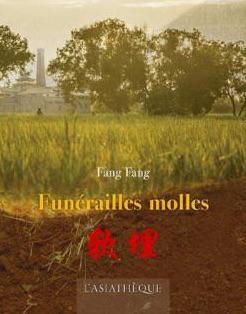
Maoist groups and websites on the Internet violently attacked the novelist for alleged sympathy towards landowners and a desire to discredit land reform and thus the legitimacy of the CCP. The book should never have been published. It is “historical nihilism”, a distortion of history...
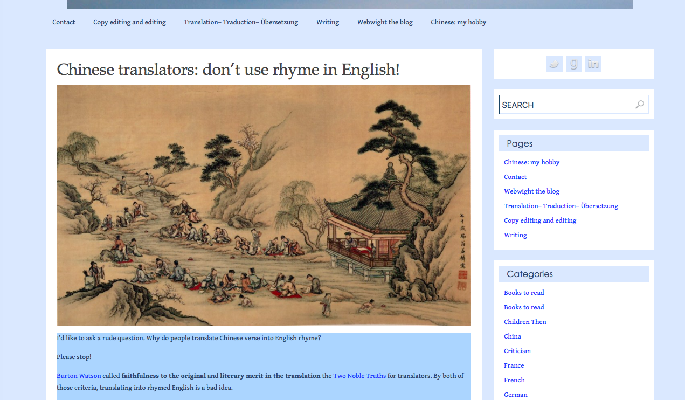
This is one of the sharpest, funniest articles we've read in a while. Julie Sullivan writes: "I’d like to ask a rude question. Why do people translate Chinese verse into English rhyme? Please stop! Burton Watson called faithfulness to the original and literary merit in the translation the Two Noble Truths for translators. By both of those criteria, translating into rhymed English is a bad idea."
Read on, and enjoy...
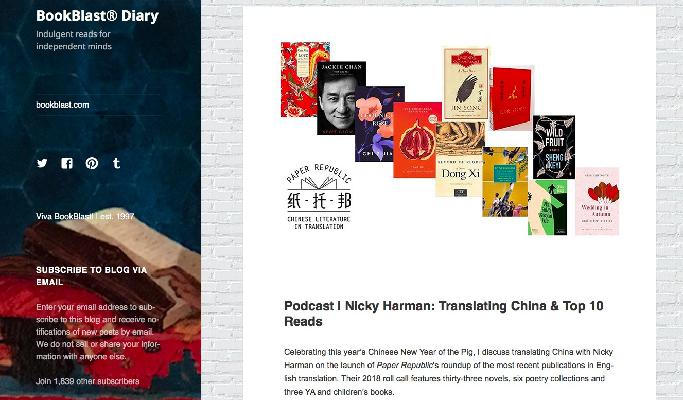
In which the Paper Republic 2018 roll call of translations gets another outing: "...Celebrating this year’s Chinese New Year of the Pig, I discuss translating China with Nicky Harman on the launch of Paper Republic’s roundup of the most recent publications in English translation. Their 2018 roll call features thirty-three novels, six poetry collections and three YA and children’s books...."

......a recurring meme. A fan – almost always a young, attractive female – will post a picture of herself holding a copy of one or more of Feng Tang’s works. She will strike an appealing pose, maybe add a few hearts or kissing emojis, or even wish the author a happy Valentine’s Day and refer to him as a “dream boy.” Feng then reposts the message on his own Weibo page, with a suggestive phrase such as “we are really enjoying ourselves tonight.”
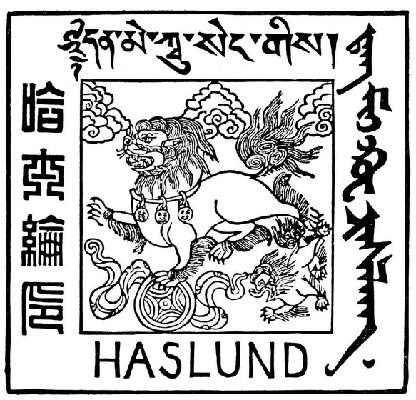
Now a renowned author based in China’s capital, narrator Guo is back for a visit to the Inner Mongolian village where he grew up speaking the language of his people. One day he finds himself at the summit of Mt. Gahai, the location of an ovoo — a heap of stones marking a sacred site — said to be a Shaman’s altar . . .
By David Haysom, February 15, '19

Since its release on the first day of the Lunar New Year, The Wandering Earth (流浪地球) – 郭帆 Frant Guo’s adapatation of the Liu Cixin novella (translated into English by Holger Nahm) – has been setting box-office records, upending expectations of what a Spring Festival blockbuster can be, and apparently even inspiring a Durex ad:
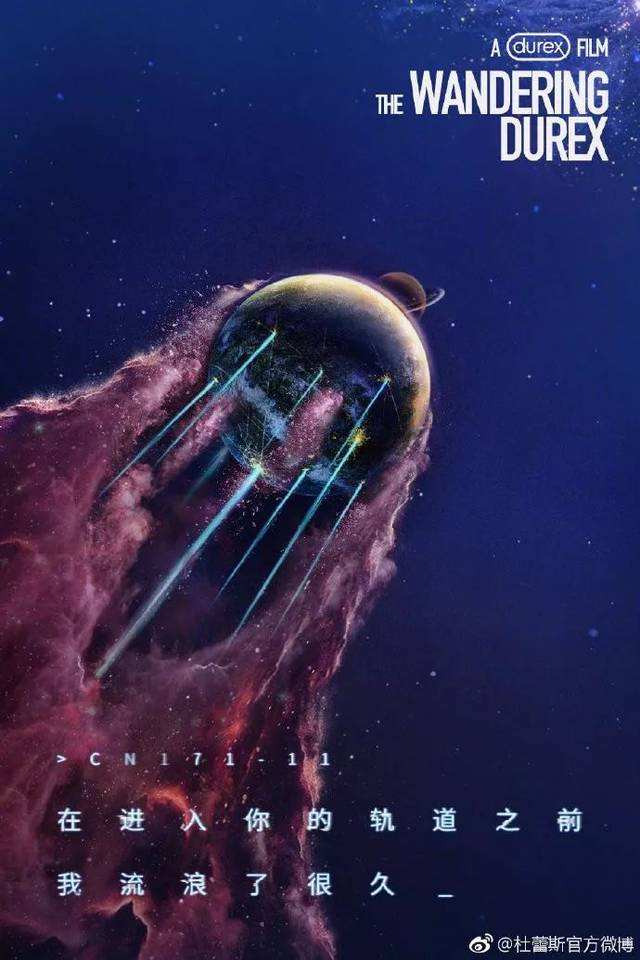
Here’s a round-up of some of the responses.
More…
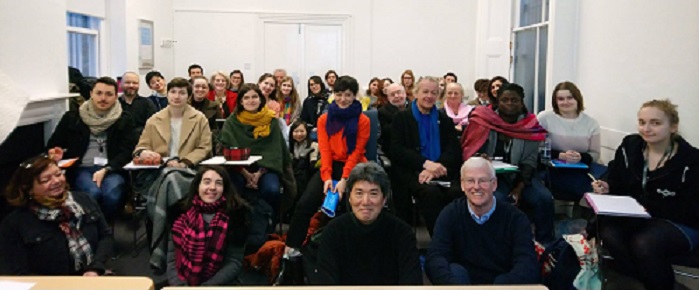
SOAS Centre for Translation Studies will be hosting a Chinese Translation Workshop: Translating Cultures, Literature, Films, and Non-Fiction on 28 and 29 March 2019.
Confirmed presenters and tutors are :
Robert Neather (HKBU, Hong Kong)
Wai-Ping Yau (HKBU, Hong Kong)
MA Huijuan (BFSU, Beijing)
Nicoletta Pesaro (Ca' Foscari University of Venice)
Claudia Pozzana (University of Bologna)
Marie Laureillard (Institut D'Asie Orientale, Lyon)
Cosima Bruno (SOAS, University of London)
Tickets here: https://store.soas.ac.uk/product-catalogue/conferences-events/international-academic-events/translation-workshop-by-cts-march-2019?fbclid=IwAR3LLD5BrDrrN3NrdLd_K06Y3-nCsrYbPc6QxIJi8fuFmTew54Hg-bjGnho

Warwick Translates is the first literary translation summer school to be held at the University of Warwick. The course will be taught in an all-day workshop environment using a variety of texts including non-fiction (essays, journalism, academic) and fiction (poetry, fantasy, children's literature and crime writing etc.) There will be plenty of opportunities for networking with publishers, agents, Warwick staff and one another. Lunch time events will include discussion panels with publishers and editors. Evening events will include a Translation Slam and a Keynote Lecture by Preti Taneja entitled ‘Translating Shakespeare in conflict and post-conflict zones: the challenge to “universal” human rights’.
As the workshops are all into English, it is essential that all applicants to the course are English mother-tongue level. The Chinese-to-English option will be taught by Nicky Harman.
WHEN: 6th - 10th July 2019. 10am - 4.30pm daily plus evening events.
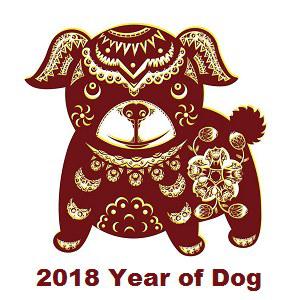
Asian Books Blog runs its own literary award: the Asian Books Blog Book of the Lunar Year. We are about to confer the award for the Year of the Dog, just finished. Asian Books Blog highlights books of particular interest in, or especially relevant to, Asia, excluding the Near West / the Middle East. And, by the way, there are two translations from Chinese on the shortlist.
Voting closes at 5pm on Friday February 15, 2019, Singapore time.
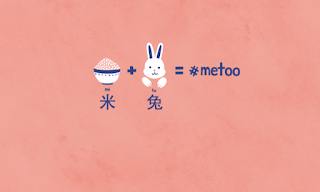
Following on from last week's post about the Oxford Dictionaries Hindi word of 2018, Paper Republic have nominated their Chinese word of the year for the Year of the Dog, just closed.....
PS we'd love to credit the artist of this picture, currently anon. Let us know, please!
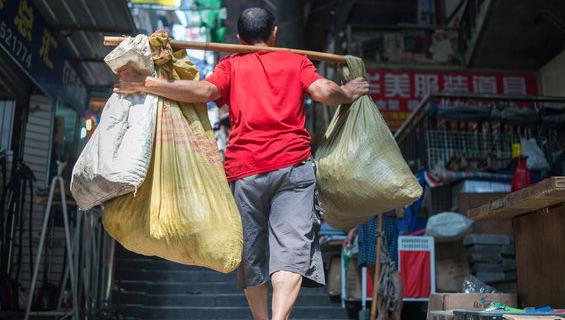
Good deeds, good returns.
Bad deeds, bad returns.
The Chinese Dream.
Not that it doesn’t come back.
Zao you zaobao, wan you wanbao.
Morning has morning papers, evening has evening news.
Early deeds, early returns.
Late deeds, late returns.
Late returns after gambling.
Famous party secretary, famous police chief,
they are in prison now. Or one is dead?
Killed a British guy, now they imprison Canadians.
Anyway, my poem.
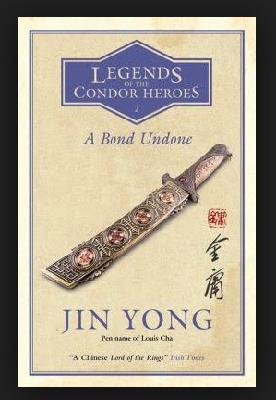

Frankly speaking, we took this to a new level in Confessions, because many of the terms — perhaps most — that we Romanized in the novel were conveyed mainly or entirely by standard Chinese in the original. They appeared frequently throughout, and I felt that they conveyed something essentially Uighur, so we used transliteration to underline this.
They included: various terms for friend/brother (adash, aghine); foods such as süt chay (milk tea); rexmet (thanks); terms for jade mafiosi (Ghojam, Xojayin); karwat (a couch-like piece of furniture for lounging indoors, or outside in the shade)...
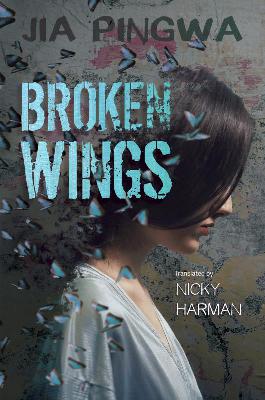
"....Broken Wings is a disturbing read for other reasons too: Jia Pingwa hints at Butterfly's impending mental breakdown, and presents us with an eventual rescue which may, or may not, be a dream sequence. Will Broken Wings appeal to English-language readers and if so, why? "
By Nicky Harman, January 27, '19
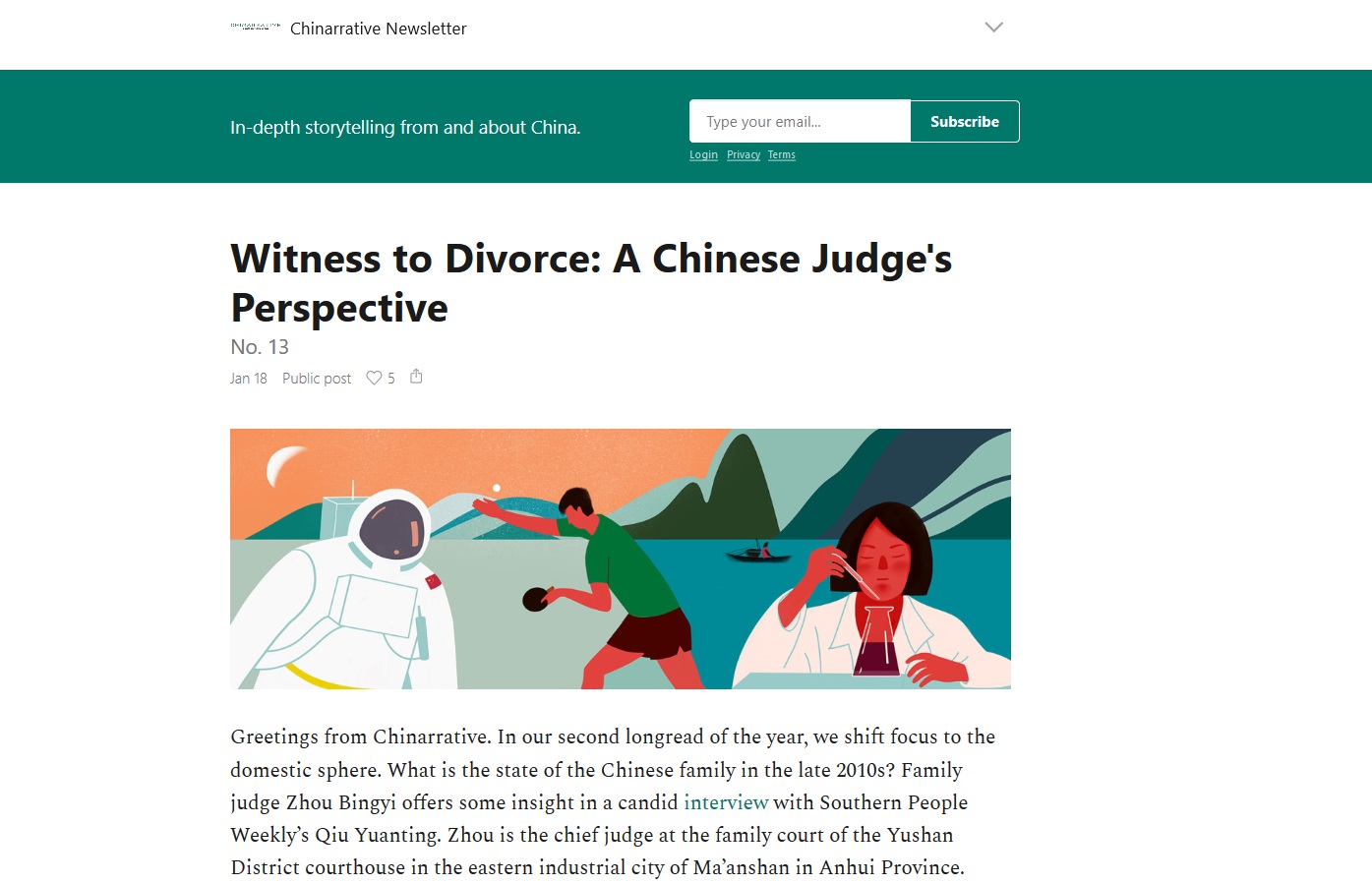
For interested readers, here's an online newsletter, launched May 2018 and now twice-monthly. They feature Chinese longform in translation and also some original English submissions by Chinese authors. The founder and publisher is Colum Murphy, a veteran Asia-based journalist, and Min Lee is the current editor and lead translator. They would love to hear from the translation community, be it comments, suggestions or story ideas.
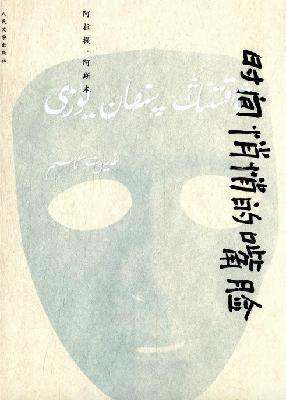
Sidik Golden MobOff had turned his cell phone off again, so he was the only no-show for our evening tipple. The latter part of his double-barreled nickname, “MobOff,” was another tag pinned on him by his mates.
After he retired, his routine was to power off after an hour or so in the morning, and keep it off during the afternoon to avoid indulging with his meat-and-liquor sidekicks. This was in deference to Big Sister Roxian, his granny of a wife devoid of feminine appeal, who watched over him like a hawk. She’s ancient and her mouth is capable of the most vulgar invective, so it was no easy feat to catch a glimpse of our old brother’s crafty countenance.
If you went to his place to ask him out, from behind the slightly ajar door the crossgrained, eyebrowless mug of his deranged old lady appeared, her wild feline eyes glaring at you:
“I’m on the lookout, but I haven’t seen him either!” was her time-honored response.
Big Sister Roxian looks no different than the victim of a kidney heist—vindictive, as if today were the end of the world. She’s revolting.
By Bruce Humes, January 21, '19
China-based publishers are notorious for a misleading practice: the nationality of the author — not necessarily the language of the source text — is often noted on the spine or copyright page. Thus the reader may well believe she is reading a novel translated direct from the Swahili, when the source text is actually the English rendition of a Swahili original...
If you're interested in reading and/or adding to several comments on this topic, please click:
http://bruce-humes.com/archives/12862
And see the comments immediately below the article itself.

Alec Ash: Well, let me try to help. I’ll swallow your bait and, for the first time after doing over eighty interviews for Five Books, break rank and lay into one of an interviewee’s book choices. You’ve convinced me of the historical merit of Shanghai Baby, as a record of the time when Shanghai was re-opening to the world. But I can’t help think it’s a novel of pretty terrible literary merit. I read it in translation, but dipped into the Chinese to get a feel for the original, and I still find the characters to be paper-thin stereotypes, written pretentiously as utter clichés: the virile German, the Shanghai dolls, the effeminate Chinese boyfriend. Not everyone could have been that two-dimensional in Shanghai of the 1990s.
Paul French: And that is why you’ve spent so many years in Beijing, not Shanghai. You know what? Everybody was that two-dimensional. Everybody, myself included. We went to Shanghai because we were out to make money. Look at the foreigners of that generation who went to Shanghai: they’re a money-obsessed, fairly frivolous bunch. To have had lots of depth and thought about what was going on? There wasn’t time to think. There was so much happening. We just weren’t as stoical and as serious as later generations and, particularly, the later generations that went to Beijing.
We came out of that crazy 80s decade in Europe and America, the go-go 80s, and went straight into the go-go 90s of Shanghai—it was a 20-year party that just moved from London to Shanghai. Of course, Shanghai itself had come out of nowhere all of a sudden. One day, it’s bloody Tiananmen Square, and then the next day, you can go to a disco every day of the week and take drugs and no one gives a shit. That’s an incredible thing within five years. So you could write the ‘right-on’ book about it, but this book instead feels ‘spot on’ to me. The Germans are spot on. The guys are spot on. The girls are spot on.
By Nicky Harman, January 17, '19
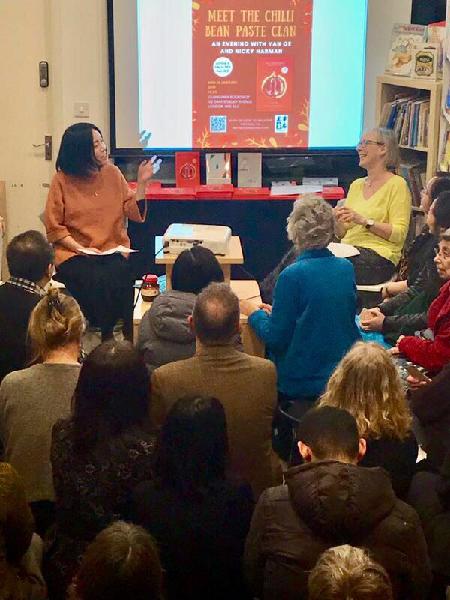
The Guanghwa Bookshop (Shaftesbury Avenue, London) was packed for our "[Un]Happy Family" event with Yan Ge and translator Nicky Harman last night. We talked about Yan Ge's novel The Chilli Bean Paste Clan (in Chinese《我们家》), its complicated characters, and what was in Yan Ge's mind when she created her middle-aged male [anti]hero, when she herself was in her mid-twenties. And we talked about the challenges of translating colourful Pixian Town obscenities into English, a language where swearing is kind of pale by comparison...and much much more. Thank you all for coming!
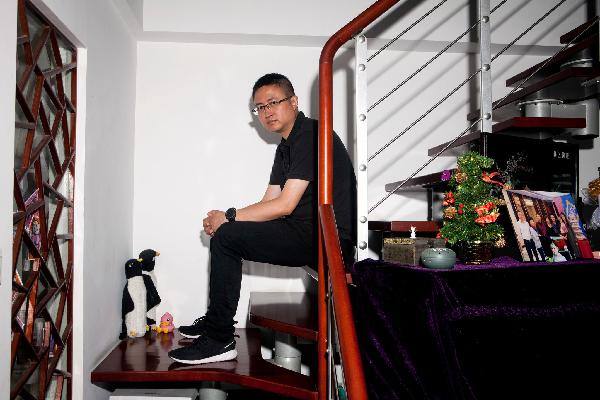
His mild manner seems at odds with the lurid violence of crime novels. In “Death Notice,” the killer of two police academy cadets in a gruesome bombing resurfaces after 18 years, this time orchestrating the murder of a revered police sergeant whose failure to solve the original case haunted his career.
Then, as now, the killer fashions himself as an avenger, bringing justice to those whose crimes have gone unpunished. The killer calls himself Eumenides after the third of the Oresteia ancient Greek tragedies by Aeschylus and warns each of his victims in notes drawn with exquisite Chinese calligraphy, luring the police into a diabolical game. The new killing spree revives a special police task force that had been shelved for reasons that, to explain fully here, would amount to a spoiler.
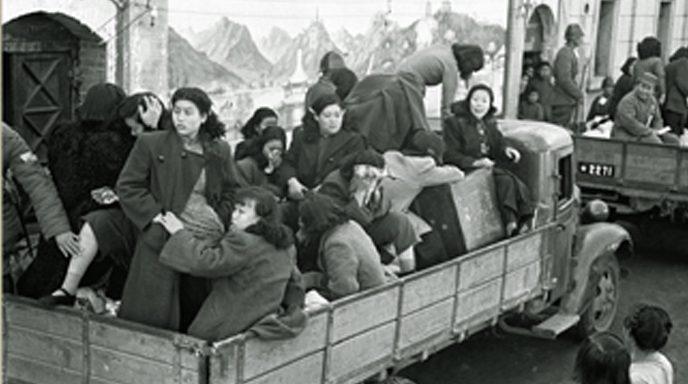
One morning in May, a truck from the army barracks stopped at the entrance of Emerald Cloud Lane. A bevy of gaudily attired prostitutes flaunting heavy makeup ambled out of the lane and clambered up over the truck’s tailgate… The last prostitutes to emerge were Autumn Grace and Petulia of Red Delight Pavilion. Autumn Grace was wearing a silk brocade Mandarin gown and high-heels. She leant against a doorframe as she bent over to smooth out her stockings below her knees. Petulia, who was following, looked as though she had just woken up; hair unkempt and dark circles under her eyes.
The rest of the novella tells the story how the two close friends, Autumn Grace and Petulia, alternately cope with the “New Society”. Autumn Grace escapes from the common transport and ultimately takes refuge in a nunnery. The aptly-named Petulia petulantly pouts her way through her spell of manual labor, only to latch on to Mr P’u, one of the Red Delight Pavilion’s more dapper erstwhile customers and, in fact, Autumn Grace’s regular.
The three protagonists in this ménage à trois adapt to the new reality, after a fashion, not terribly well, but life goes on. All that remains of the old life in the end is a rouge tin.
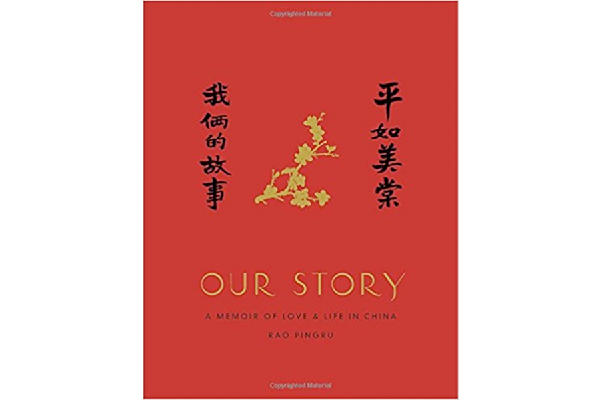
The 350-page memoir, half in prose and half in color drawings, is a vivid, at times intimate, portrait of a changing China. The story begins with Pingru’s childhood in the 1930s, a time when “the charms of my hometown had not changed much since the days of the Song dynasty [10 to 13th century AD],” and ends in the 2000s, where dialysis equipment for Meitang can be installed in the couple’s bathroom. In between, we see Pingru in close combat with Japanese troops, traveling with Meitang after the war, and enduring hardship at the labor camp. The perspective of a KMT soldier – something China's censors still limit today – will be an eye-opener for many readers, especially young people of Chinese descent around the world.
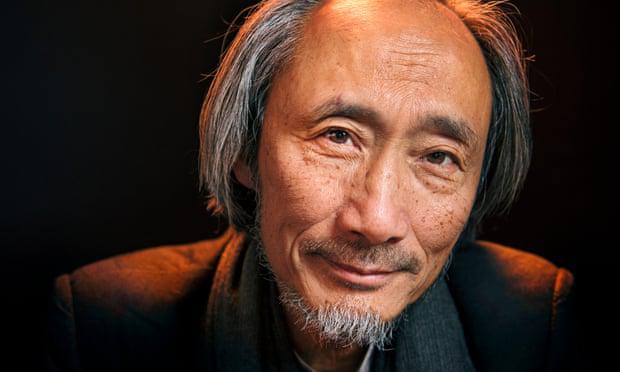
In 2012, President Xi Jinping used the phrase the Chinese Dream (zhōngguó mèng) to describe “the great rejuvenation” of the nation. A national solidarity movement, the Chinese Dream attempts to fuse cultural pride and individual self-realisation with the country’s economic growth and rising influence. The slogan is everywhere, on billboards, in speeches and advertisements, and mixes patriotism and self-help with the “twin goals of reclaiming national pride and achieving personal wellbeing”.
Ma was born in 1953, the same year as Xi Jinping. Both men witnessed the shaming, exile and loss of family members during Mao Zedong’s political campaigns. In 1983, Ma himself was arrested for the crime of spiritual pollution; he chronicled his exile to the most remote regions of the country in Red Dust, an unforgettable memoir of post-Mao China. Today, the lives of Ma and Xi remain strikingly at odds. In 2018, Xi ended term limits on the presidency, thus opening the door to his indefinite rule. Ma, barred from even entering China, has mischievously stolen Xi’s signature slogan.
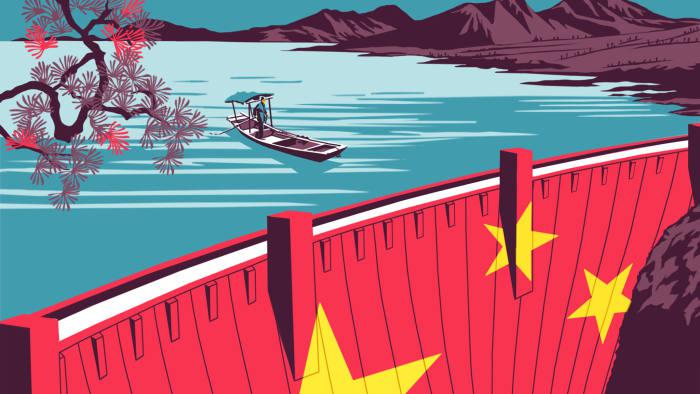
Ma, who has gone under the sobriquet of “dissident writer” for most of the past 20 years, is banned from his native country, his works unpublished in mainland China. Ironically, the suppressing of one form of liberty has allowed his own freedom of expression to flourish — Ma is a far more explicit, and, for a man of famously tranquil demeanour, enraged interpreter of China than his compatriots.
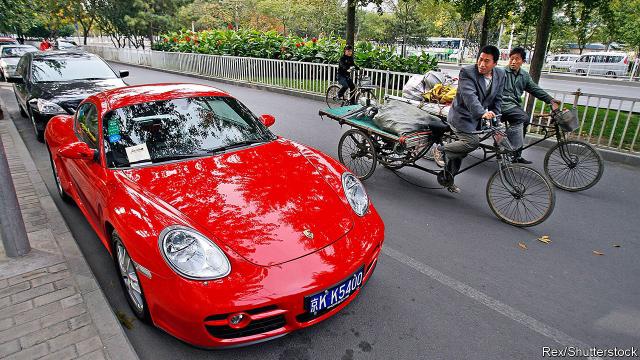
Mr Ma’s critique of the totalitarian mindset recalls that of Soviet-era dissidents. For him, the might of the state rests on its erasure of history, private and public. His anti-hero tells pensioners at a mass golden-wedding festival that “the past must be buried before the future can be forged”. This novel suggests the contrary, in scenes of slapstick mockery punctuated by tragic and elegiac interludes. Coercive amnesia traps a person, or a society, in a cycle of neurotic repetition. What is repressed always returns. Ma Daode finds that “his memories are like footballs on a pond: the harder he pushes them down, the higher they bounce up again.”
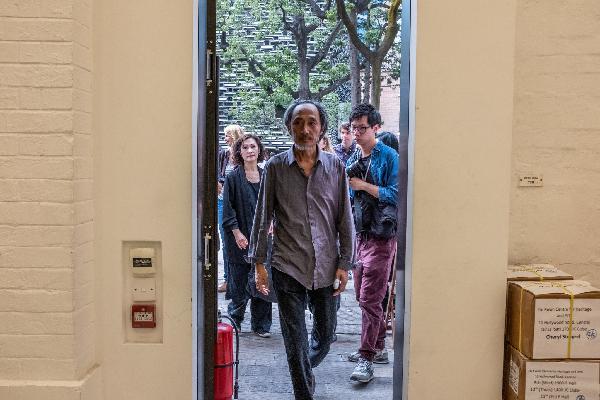
“China Dream” is a sharper political allegory than Mr. Ma’s earlier novels. It crackles with bruising satire of Chinese officialdom, and an acerbic wit that vaguely recalls Gary Shteyngart’s sendup of Russian oligarchs in “Absurdistan,” or even Nikolai Gogol’s portraits of Russia’s provincial aristocrats in “Dead Souls.”
Yet even for Mr. Ma, whose work is banned in mainland China, the novel is especially provocative because it makes a critique that is rarely uttered aloud these days by ordinary Chinese: that censorship and repression under a Xi-controlled Communist Party bears an eerie resemblance to that of the Cultural Revolution.
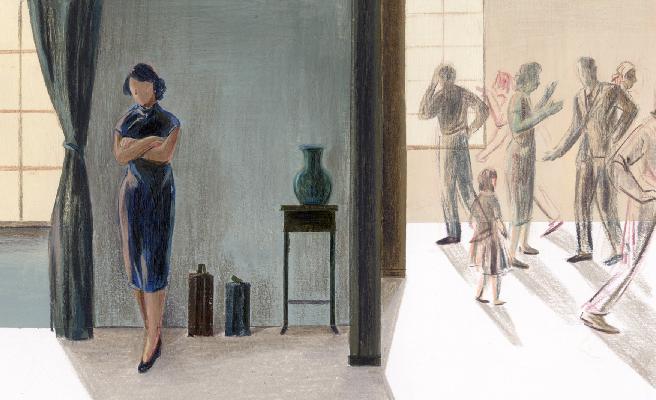
While one might expect “Little Reunions” to chart Julie and Chih-yung’s affair and subsequent marriage, and then her later affair with Yen Shan, it does not. In fact, the novel resists tracing any one particular relationship in a focused way. Eileen Chang (1920-95) uses broad brush strokes to take the reader through decades of a crumbling family. At this time in Chinese history, the aristocracy is falling out of favor. Looming on the horizon a few decades ahead is the Cultural Revolution. Readers should expect an extensive cast and speedy transitions, and take stock of the character index, a helpful 10-page, alphabetized list of everyone in the novel. And, given these quick transitions, be prepared to jump from event to event; for example, from an intimate conversation between mother and daughter to a sudden bombing.
First published in 1994, “Notes of a Crocodile” is in many ways a futuristic text, as it contains conversations about identity that are happening now — and ones that have yet to. It is refreshing to read a novel that so frankly examines patriarchy, misogyny, homophobia, gender normativity and capitalism — especially one that howls so freely with pain. Lazi and her friends are philosophers who feel. They convey the rich and vital role of emotion in any revolution. Like gender and sexuality, the depths of pleasure and especially of sorrow are revealed here on a spectrum. Qiu reminds us that “positive” examples of the homosexual in literature and pop culture can be neutering and dehumanizing, as they often speak more to the institutions that despise them. Lazi exhibits moments of bliss and epiphany in a more complicated emotional terrain — the joy is in her mind, her pleasure in thinking, talking and writing — especially writing what she is unable to say.

...only a few [African] authors have had more than one volume dubbed into Chinese, and even fewer with two or more books. These include the likes of Nigerian authors Wole Soyinka and Chinua Achebe, Egyptian Nobel Prize winner Naguib Mahfouz, Kenya’s Ngũgĩ wa Thiong’o, South Africa’s Nadine Gordimer and J. M. Coetzee, and the sole Lusophone writer with at least three novels now in Chinese, Mia Couto of Mozambique.
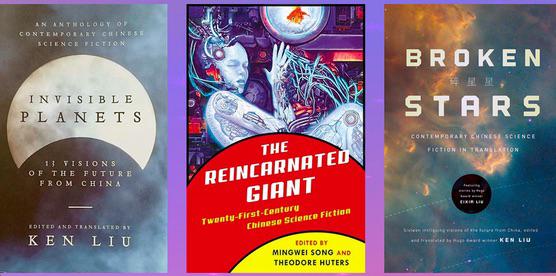
“Science fiction is as rare as unicorn horns, which shows in a way the intellectual poverty of our times”, wrote Lu Xun, one of China’s most towering and revered literary figures, writing about science fiction literature in China in his preface to his 1903 translation of Jules Verne’s From the Earth to the Moon.
116 years later, science fiction in – and from – the People’s Republic of China has come a long way since then, to become what is arguably the most popular genre of literature in China and with translations of Chinese science fiction picking up pace and finding a ready and eager audience – to the extent that some have even referred to it China’s greatest cultural export since kung fu – one can safely say that Chinese SF’s journey to the west (and elsewhere) has only just begun, with its star showing no signs of diminishing. But it wasn’t always so.
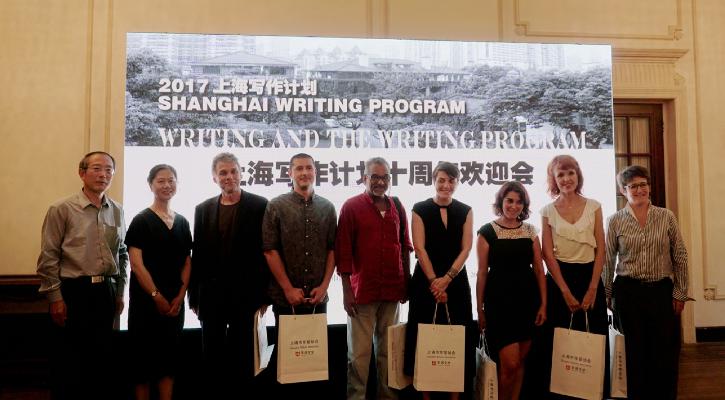
The Shanghai Writing Programme invites several internationally acclaimed writers to spend two months in Shanghai, China. The residency is an annual event which has hosted 69 writers from over 30 countries since it began in 2008.
By Eric Abrahamsen, January 9, '19
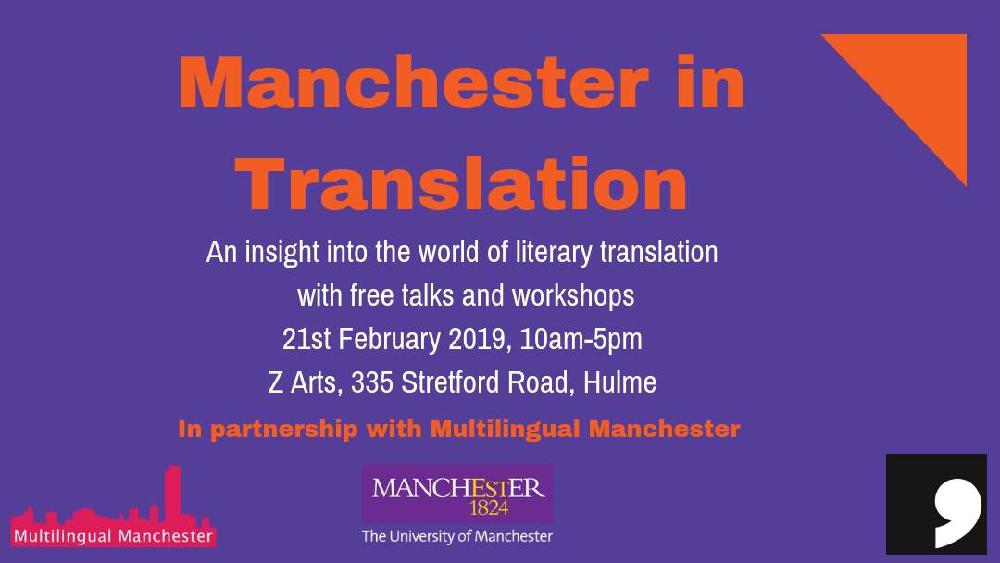
Comma Press, based in Manchester, is putting on a one-day translation event together with Multilingual Manchester, part of the University of Manchester.
Helen Wang will be leading the Chinese workshop, so sign up now! It's free. More details here.
The novel is set in a village over a 24-hour period in June in which the villagers are afflicted by mass somnambulism, or as the Chinese put it “dream walking”. The events are recounted hour by hour through the eyes of a 14-year-old boy, Li Niannian, whose parents eke out a living making and selling funerary paraphernalia.
Our hero’s maternal uncle is also in the death business, as the official in charge of the crematorium: his zealous enforcement of regulations that ban burials and mandate cremation make him both rich and universally hated. It is also widely suspected that Niannian’s father is an informer, earning money from tipping the crematorium off about village families secretly burying their dead. Later, he buys and stores barrels of human oil that the crematorium collects from the corpses. Quite why is unclear, although those same barrels re-enter the plot at the redemptive finale.
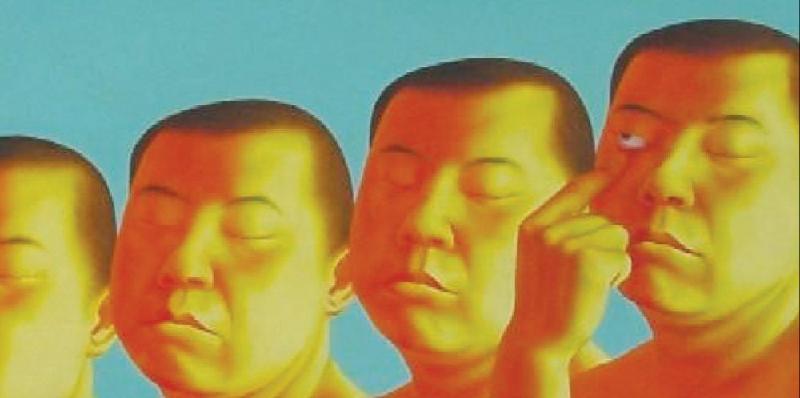
Despite Yan’s demurred (and understandable) aversion to political interpretations, the novel’s critical intent is self-evident. “Dreamwalking” inverts President Xi Jinping’s much-vaunted though nebulous “Chinese Dream” with horrifying effect. At one point, Niannian’s dreamwalking aunt and uncle prepare four dishes and a soup laced with an insecticide for their fellow Gaotian ruling elites, who, unlike the villagers, eat and socialize rather than steal and kill. Although the expression “four dishes and a soup” dates to the Ming Dynasty, President Xi has used it as a coded exhortation towards modesty and frugality amongst Party elites. As Niannian observes early in his narrative, “Everybody believed in dreams, but didn’t believe in reality. It was all quite odd.”
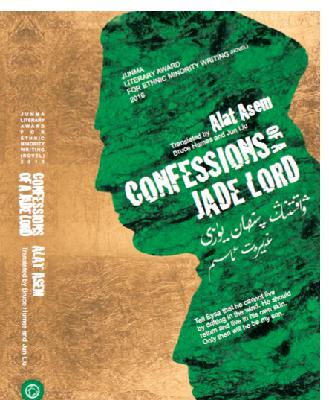
Alat Asem begins his narrative with the backstory to the name of the protagonist, an anti-hero ripe for moral transformation named Eysa ASAP who exemplifies the hardened, survivor's will of a Uighur man out to better himself, but who in the process only hurts those closest to him.
"ASAP" originates from his ability to attract women with stunning immediacy. It is his weakness for compulsive action that sends him spiraling into the pulpy yarn of "Confessions," rich with the special qualities of Uighur literary wit arguably best interpreted in four sequences, as subtle plays on the pseudo-religious themes: death, resurrection, repentance, redemption.
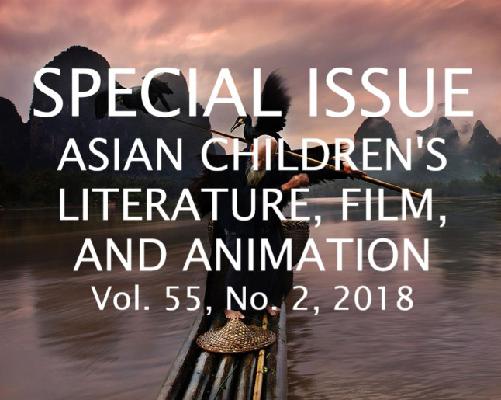
Including papers on Chinese children’s lit (gender, politics, war, transculturation, ethnicity, criticism)
By Bruce Humes, January 1, '19
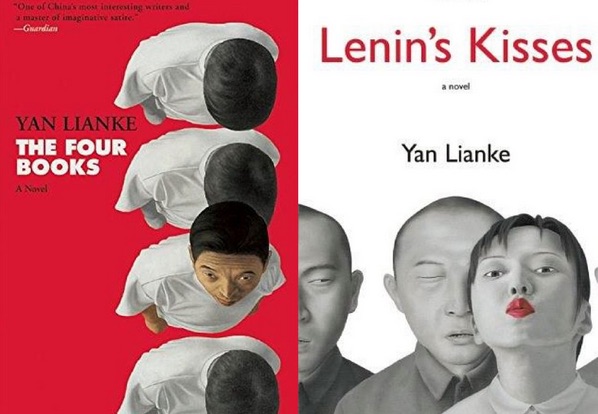
Several of Yan Lianke's novels have not been published in China, or were initially published in Taiwan because he couldn't find a publisher in the PRC. Although he teaches at Renmin University of China in Beijing, the authorities seem keen to silence much of what he says, in fiction or otherwise.
Such is the case with a Dec 27, 2018 interview of him by The Beijing News (新京报), which has already been taken off the internet (looks like I'm wrong, see comments!), but saved -- for now anyway -- in a Google cache file.
Entitled 一个伟大文学的时代已经悄然消失, it can be found here in text form, and here with several photos (covers of his novels + a few of him).
I have copied the entire interview below in Chinese (text only).
More…













































